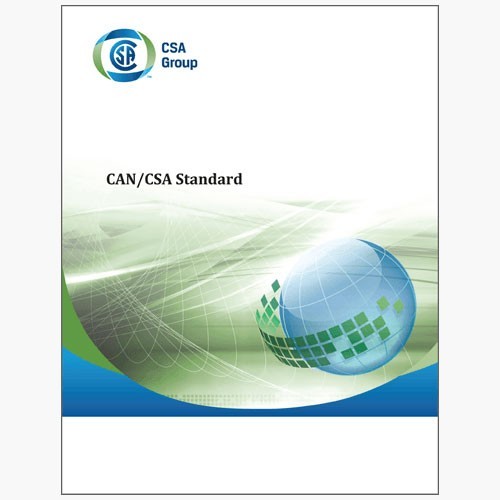TOLL FREE · 1-888-361-0003 Our Customer Support is ready to help!

Formats Available:
Online,
Print
Product Overview
CAN/CSA-ISO/IEC 9075-2:18
CSA Group Information technology - Database languages - SQL - Part 2: Foundation (SQL/Foundation) (Adopted ISO/IEC 9075-2:2016, fifth edition, 2016-12-15)
Total
As low as
$229.00
More About This Product
Description
Preface Standards development within the Information Technology sector is harmonized with international standards development. Through the CSA Technical Committee on Information Technology (TCIT), Canadians serve as the SCC Mirror Committee (SMC) on ISO/IEC Joint Technical Committee 1 on Information Technology (ISO/IEC JTC1) for the Standards Council of Canada (SCC), the ISO member body for Canada and sponsor of the Canadian National Committee of the IEC. Also, as a member of the International Telecommunication Union (ITU), Canada participates in the International Telegraph and Telephone Consultative Committee (ITU-T). For brevity, this Standard will be referred to as "CAN/CSA-ISO/IEC 9075-2" throughout. This Standard supersedes CAN/CSA-ISO/IEC 9075-2:13 (adopted ISO/IEC 9075-2:2011). Scope This part of ISO/IEC 9075 defines the data structures and basic operations on SQL-data. It provides functional capabilities for creating, accessing, maintaining, controlling, and protecting SQL-data. This part of ISO/IEC 9075 specifies the syntax and semantics of a database language: For specifying and modifying the structure and the integrity constraints of SQL-data. For declaring and invoking operations on SQL-data and cursors. For declaring database language procedures. For embedding SQL-statements in a compilation unit that is otherwise written in a particular programming language (host language). For deriving an equivalent compilation unit in the host language. In that equivalent compilation unit, each embedded SQL-statement has been replaced by one or more statements in the host language, some of which invoke an SQL externally-invoked procedure that, when executed, has an effect equivalent to executing the SQL-statement. For direct invocation of SQL-statements. To support dynamic preparation and execution of SQL-statements. This part of ISO/IEC 9075 provides a vehicle for portability of data definitions and compilation units between SQL-implementations. This part of ISO/IEC 9075 provides a vehicle for interconnection of SQL-implementations. Implementations of this part of ISO/IEC 9075 can exist in environments that also support application programming languages, end-user query languages, report generator systems, data dictionary systems, program library systems, and distributed communication systems, as well as various tools for database design, data administration, and performance optimization.
Preface Standards development within the Information Technology sector is harmonized with international standards development. Through the CSA Technical Committee on Information Technology (TCIT), Canadians serve as the SCC Mirror Committee (SMC) on ISO/IEC Joint Technical Committee 1 on Information Technology (ISO/IEC JTC1) for the Standards Council of Canada (SCC), the ISO member body for Canada and sponsor of the Canadian National Committee of the IEC. Also, as a member of the International Telecommunication Union (ITU), Canada participates in the International Telegraph and Telephone Consultative Committee (ITU-T). For brevity, this Standard will be referred to as "CAN/CSA-ISO/IEC 9075-2" throughout. This Standard supersedes CAN/CSA-ISO/IEC 9075-2:13 (adopted ISO/IEC 9075-2:2011). Scope This part of ISO/IEC 9075 defines the data structures and basic operations on SQL-data. It provides functional capabilities for creating, accessing, maintaining, controlling, and protecting SQL-data. This part of ISO/IEC 9075 specifies the syntax and semantics of a database language: For specifying and modifying the structure and the integrity constraints of SQL-data. For declaring and invoking operations on SQL-data and cursors. For declaring database language procedures. For embedding SQL-statements in a compilation unit that is otherwise written in a particular programming language (host language). For deriving an equivalent compilation unit in the host language. In that equivalent compilation unit, each embedded SQL-statement has been replaced by one or more statements in the host language, some of which invoke an SQL externally-invoked procedure that, when executed, has an effect equivalent to executing the SQL-statement. For direct invocation of SQL-statements. To support dynamic preparation and execution of SQL-statements. This part of ISO/IEC 9075 provides a vehicle for portability of data definitions and compilation units between SQL-implementations. This part of ISO/IEC 9075 provides a vehicle for interconnection of SQL-implementations. Implementations of this part of ISO/IEC 9075 can exist in environments that also support application programming languages, end-user query languages, report generator systems, data dictionary systems, program library systems, and distributed communication systems, as well as various tools for database design, data administration, and performance optimization.
